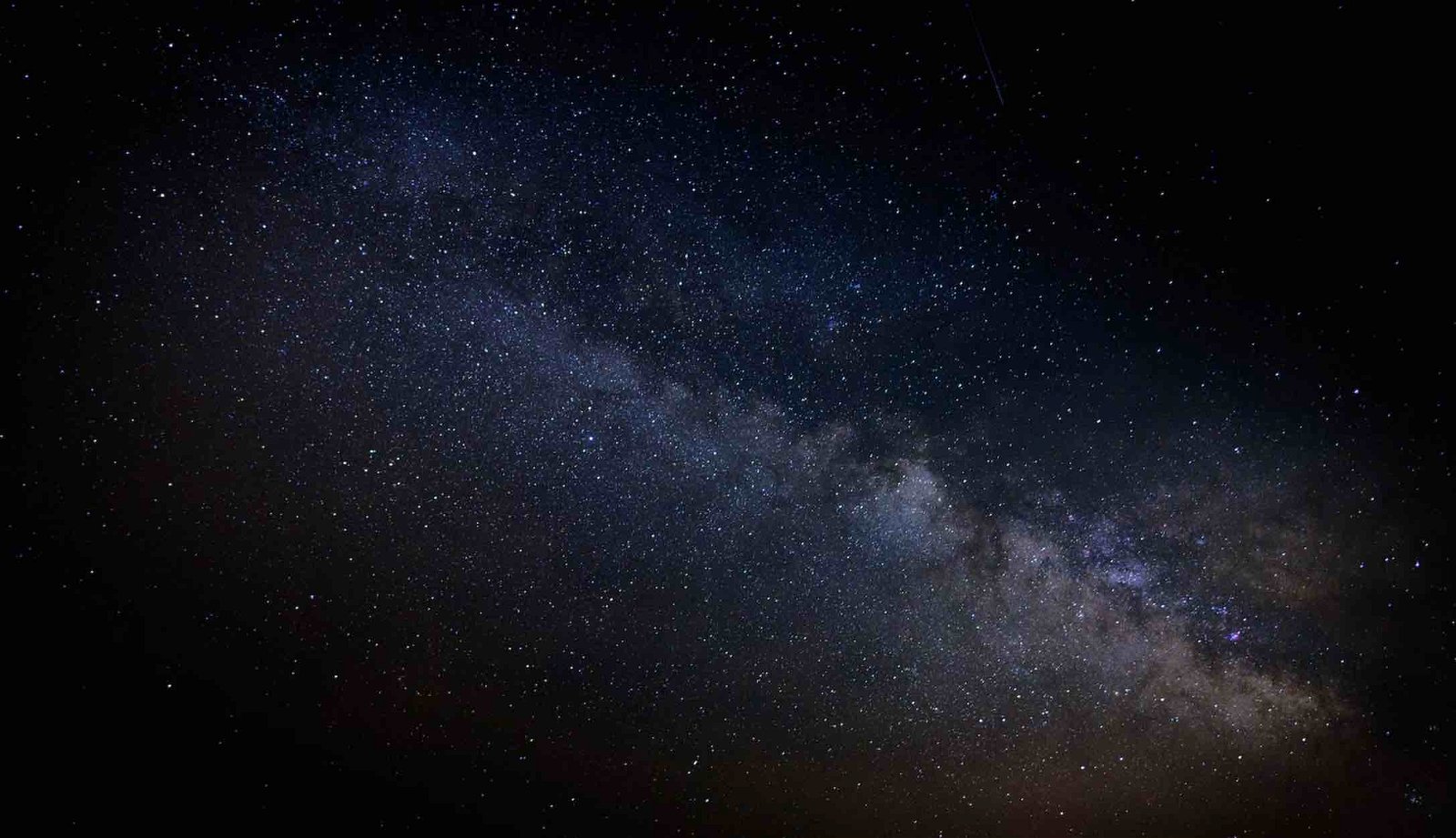The Milky Way gave birth to billions of Earth-like planets in the habitable zone around Sun-like stars. Most of these stars formed billions of years before the Sun and by now boiled the oceans on the surface of their habitable planets, the way the Sun will do to Earth in merely a billion years.
Suppose we avoid the temptation of arrogance and imagine life in these habitats. In that case, there must have been billions of global extinction events of planetary biospheres in the history of our galaxy. We did not hear others crying for help because our telescopes monitored the sky for merely centuries, less than a millionth of this cosmic history.
We might not feel as bad if we imagine that only microbes were involved in these billions of household deaths in our cosmic neighborhood. But living in denial is not a good strategy for survival. It is possible that some of the neighborhood disasters involved intelligent beings like us.
Given the existential risks we face in the forms of artificial intelligence (AI) beyond GPT-4, global pandemics more devastating than COVID-19, or a nuclear world war trigger in Ukraine, North Korea or Iran, it is not at all clear that our technological civilization will last for more than a few centuries into the future. Just as with cigarette smoking, the addictive nature of technology might shorten dramatically the natural lifespan offered to our civilization by the Sun.
Suppose some of the past galactic civilizations were smart enough to avoid self-inflicted wounds and escape natural disasters on their birth planet by venturing into interstellar space. In that case, they may have obtained by now a global statistical view of the history of technological civilizations. The key question is whether they would conclude that we are an intelligent species.
Alternatively, they might see parallels in the way we ignore existential risks and drive our cars off a cliff, just like many civilizations on exoplanets did time and time again over the past billions of years. From a global perspective, “survival of the fittest” favors rare civilizations which are seeking long-term prosperity through the infinite-sum game of new knowledge instead of the zero-sum game of limited resources on their home planet. It also favors civilizations that adapt to their changing physical reality rather than use recreational drugs, Metaverse goggles, or extra-dimensions in a hypothesized multiverse to feel good about themselves in a virtual world that has no connection to the physical reality that affects their physical survival.
While watching us, these long-term survivors might say: “Here is another example, out of so many cases over the past billions of years, of a technological civilization that could have survived long-term if its members were only humble, honest, and curious.” It is common practice to blame politicians for our misfortunes, but scientists miss these points as well.
The frontiers of our scientific knowledge naturally lie on the boundary between the known and the unknown. The unsettling uncertainty about the nature of the unknown tempts the gatekeepers of new knowledge to move the gate and claim the unknown as part of what is known.
Let us start with examples that followed the fine tradition of experimental tests. In 1935, Albert Einstein was guided by the known nature of classical physics when he argued that quantum mechanics should not have “spooky action at a distance” and proposed an experimental test for it. The 2022 Nobel Prize was awarded to the experimentalists who had proved him wrong. In the early 1990s, Jim Peebles, who holds the Albert Einstein professorship at Princeton, argued that dark matter might actually be ordinary matter. A quarter of a century later, Peebles was awarded the 2019 Nobel Prize for his pioneering work in cosmology. Still, his dark-matter cosmology was demonstrated to be wrong by observational data. The nature of dark matter remains mysterious. If we could only see dark matter, half of our sky would be covered by the halo of the Andromeda galaxy, which is touching the Milky Way halo at present.
The quantum mechanics in the first example and the gravity in the second example are not unified in a single theoretical framework. Attempts to unify them by contemplating extra dimensions within string theory did not resolve the nature of the singularities of the Big Bang or black holes, nor did they lead to a testable explanation of the vacuum ground state or dark energy. Surprisingly, the notion of extra dimensions still dominates the mainstream of theoretical physics without passing a single experimental test or suggesting one in the foreseeable future. Something changed in the sociology of science from the glorious days when Einstein and Peebles focused their efforts on proposing testable conjectures.
Consider a closer-to-home example of absorbing the gate to the unknown into the territory of what is known. Humanity launched five probes into interstellar space: Voyager 1 & 2, Pioneer 10 & 11, and New Horizons. It would only appear natural for us to entertain the possibility that some of the interstellar objects entering the solar system from outer space are relics of extraterrestrial civilizations which preceded us. But common sense is not common. Astronomers who specialize in comets argue that the first reported interstellar object, `Oumuamua, which did not show any traces of gas around it, is actually a comet with an invisible coma. As in Hans-Christian Andersen’s folktale, they say that “The Emperor’s New Clothes” are invisible. This claim was recently celebrated by Nature magazine and science reporters, even after it was shown to be based on a wrong calculation. The temptation to explain away anomalies echoes the use of epicycles to explain planetary motions in an Earth-centered worldview.
Learning is guided by the humility to seek new data in order to resolve anomalies rather than by insisting on what we already know. Seeking further evidence agnostically is key to handling the uncertain nature of the unknown. The search is not popular among gatekeepers because it requires them to admit that they missed something important about reality. It is also not popular with others because it requires the hard work of collecting new data. It is much easier to maintain existing opinions and not rock the status quo of past beliefs.
When both my parents died a few years ago, I decided to focus on substance and not on popularity contests. Humanity faces existential risks, and I would rather help it become one of the rare survivors in the Milky Way galaxy. Evidence rather than human-made stories is key to our survival. And the best wake-up call would be delivered by a technological alarm clock sent by another Milky Way survivor.
My hope is that our attitude toward learning will change once we realize what other intelligent civilizations did to survive. Smarter students in our class could inspire us to do better. In this vein, the privately-funded Galileo Project is constructing new observatories to study Unidentified Aerial Phenomena, developing software to discover `Oumuamua-like interstellar objects, and coordinating expeditions to study interstellar meteors, just to check whether any of them originated from extraterrestrial technological civilizations.
With any luck, may the packages we find in our mailbox include instruction manuals for our long-term survival. They might also advise us to take the correct exit from the technological highway to our demise. Altogether, interstellar dating might inspire us to be better.
Avi Loeb is the head of the Galileo Project, founding director of Harvard University’s – Black Hole Initiative, director of the Institute for Theory and Computation at the Harvard-Smithsonian Center for Astrophysics, and the former chair of the astronomy department at Harvard University (2011-2020). He chairs the advisory board for the Breakthrough Starshot project, and is a former member of the President’s Council of Advisors onScience and Technology and a former chair of the Board on Physics and Astronomy of the National Academies. He is the bestselling author of “Extraterrestrial: The First Sign of Intelligent Life Beyond Earth” and a co-author of the textbook “Life in the Cosmos”, both published in 2021. His new book, titled “Interstellar”, is scheduled for publication in August 2023.

